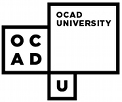Originally Published in Abilities Magazine, 2011
The technical transformation of our world over the last 20 years has been a crazy ride of challenges and opportunities. There has been little time to get used to one technology before it is supplanted by the next. This has meant that anyone requiring alternative access systems has been in perpetual catch-up mode. By all accounts we are in for another leap forward that will leave the computer assistive technology field reeling.
Advocacy and legislation can only take us so far. We require systemic, cultural change in the institutions and industries that are creating our digital future. We need individuals at the table for whom inclusive design is assumed and part of the habitual process when new technical systems, policies and services are designed, developed and implemented.
If any group needs expertise, imagination and pre-emptive innovation it is people with disabilities and the accessibility community. We desperately need to grow a community of scholars and experts to advise, advocate, represent and support our interests in this disruptive digital transition. We need to build a brain trust that knows our realities and needs but also understands and can participate on an equal footing when emerging technology is created and deployed. Not only will this help us keep up and participate in the opportunities offered by the digital transformation but it will help industry respond to the growing global market for inclusively designed products and services.
If you look at the requests for proposals put out by companies and organizations around the world you will see accessibility mentioned more and more. If you look at the help wanted adds you will notice a growing number that call for experience and knowledge in accessibility. This is not only because of global commitments to legislation in line with the United Nations Convention on the Rights of Persons with Disabilities. It is also because as the western world is aging many more people experience disabilities. Because of this we currently have an increased demand – that has caused a vacuum of supply. There is also a slowly dawning realization in the industry that designing for diverse challenges and including diverse perspectives in the design leads to far greater creativity and innovation. We need a talent pool to kick-start inclusive digital design as an economic driver. At the same time it will supply the human capacity organizations need to comply to legislation such as the AODA in Ontario.
It is with these goals in mind that OCAD University is launching an innovative new Masters program in Inclusive Design. This will not be your typical Masters program. The program hopes to recruit as diverse a group of students as possible to provide a rich, multi-faceted student experience. The program will be designed from the start to enroll students with disabilities. It is a two-year program with the majority of courses delivered online to accommodate the needs of working professionals and international students. The program will collaborate with similar programs in Europe and Asia.
The program is open to students with undergraduate degrees or experience related to information and communication technologies. Recognizing that this is an emerging academic field, relevant experience may be accepted in place of academic background.
The program will not create a new specialized market but produce graduates that will be integrated into all sectors that engage digital media and information and communication systems, including government, education, digital industries, entertainment, arts, culture, and health. The idea is to infuse inclusive design knowledge and skills into mainstream practices and to help these sectors innovate in inclusive directions.
Students will study with interesting and unique individuals and organizations from all over the world. They will be networked to a community of experts and thought leaders from many disciplines and domains. Their studies will be grounded in real world challenges but also leading edge initiatives that will shape our lives tomorrow. They will be supported and mentored by multi-sector, international open source research communities associated with the Inclusive Design Research Centre. Graduates will be equipped for the rest of their careers with a cohesive community of mentors and peers to support them in applying their knowledge and skills.
Please spread the word. Enrollment is limited. The deadline for submitting applications is May 2nd , 2011. If you are interested in applying, details about the program can be found at: http://www.ocad.ca/programs/graduate_studies/inclusive_design.htm. Help us get a great start in building the brain trust needed to establish and grow a culture of inclusion.

